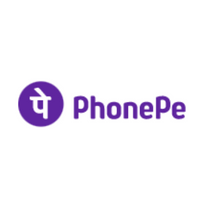
PhonePe
View Brand PublisherFinTech Open Hackathon 2022: A Playground of Ideas!
FinTech Open Hackathon 2022 witnessed the coming together of some of the most brilliant minds from the FinTech universe! Making use of open data platforms, participants have devised hacks that are sure to pave a way for improved financial inclusion in India.
The winners for the month-long FinTech Open Hackathon were announced at a virtual ceremony which also saw a demo of the winning hacks. From learning how to manage finances to solving for easier loan disbursement, this Hackathon saw a range of innovative ideas and hacks from all over the country.
Participants of the Hackathon were expected to come up with solutions for either one of the following:
- Build functional models for investment, insurance, lending, with a focus on financial inclusion.
- Build innovative products that use the power data signals for various demographics and geographies for broader adoption of financial services.
- Or, improve visualization and derived intelligence based on the Digital Payments data.
Accessible Open Data Platforms
Participants could have leveraged the following open data platforms to build their models.
- PhonePe Pulse
- Open Government Data Platform
- RBI reports on payments
Hacks That Hit Home Run!
The FinTech Open Hackathon was literally a playground of ideas and hacks. Following are the ones that stood out for the judges:
BizFiz
The first prize was awarded to BizFiz. It is a solution for MSMEs to make loan application and underwriting processes easier for banks. The problem of a cumbersome loan disbursement process was addressed in this hack with the solution focusing on a Business Sensitive Metric that identifies:
- Business Location
- Sector Trend
- Payment habits of people
- Payment habits of merchant applicant to make loan disbursement process automatic, easy and swift
The project made use of open available data from PhonePe Pulse, Data.gov and Wikipedia & Setu AA to develop the model.
Sahitya
The second prize went to a hack called Sahitya. It is a one-stop shop for all its users and acts like a personal finance management tool. It solves the problem of complex documentation and verification processes involved while availing any financial service.
Sahitya analyzes the data received from the accounts users provide their consent for. It creates a credit score with alternate data that displays the user’s net worth and other financial units. The Sahitya app comes with amazing visualizations and as and when more data is created and integrated, better models can be developed by the creators.
VisualPe
VisualPe was also awarded the second prize. It is a personal finance management system that collects financial information of users and aggregates them in one place. It solves the unique problem of understanding financial management by using charts, tables, graphs and dashboards for a users’ data visualization. This was made possible by PhonePe Pulse and Setu’s Account Aggregator data sets.
VisualPe will provide multiple perspectives on the financial data of its users, giving insights that can facilitate strategic decisions and actions that improve users’ overall finance management.
Althsis
A hack called Althsis was awarded the third prize. It solves the problem of managing multiple bank accounts by analyzing the user’s bank data and displaying all the relevant data in one place. The data includes balance, transactions, average monthly savings, Etc. Based on the user’s savings history, Althsis can predict how much loan an user can avail at a certain interest rate. All this is integrated with a seamless UI and optimized UX. They made use of open data from PhonePe Pulse and Setu’s AA.
Financial Wellbeing
The final Hackathon prize went to a hack called Financial wellbeing. It is an app that helps improve the financial wellbeing of its users by gamifying the process of saving. It solves the complex problem of realizing financial goals by learning users’ spending habits, creating personalized gamification experiences on the payment categorization data. PhonePe Pulse and Setu AA platforms were accessed in the process of this model development.
Click here to watch the closing ceremony and winner announcements.
Key Takeaways featuring Rahul Chari (CTO, PhonePe) & Anna Roy (Senior Advisor, NITI Aayog)
Commenting on the Hackathon, Rahul Chari, CTO, said “The FinTech Hackathon which centered around ‘’Open Data with a focus on Account Aggregator”, has brought together some of the brightest minds in the Fintech space.
The key takeaway for me is that, the larger goal of financial inclusion in India can only be realized if we start breaking down the boundaries of how data is getting shared by individuals with their consent and with organizations that can actually bring about financial inclusion in a manner that encourages, inspires and creates healthy competition to grow and expand the market.
The Account Aggregator framework is personally one of the most exciting things for me after UPI and I am looking forward to ensuring that PhonePe contributes to the Account Aggregator network as a license holder as well as uses the framework to expand lending in the country. ’’
Anna Roy, Sr. Advisor, NITI Aayog congratulated all the winners and commended the effort they had put in building such innovative hacks and added,”Openness is something which NITI Aayog has been advocating and it is the philosophy of the government as well, as it enables everyone in the ecosystem to get a level playing field.
The NITI Aayog Fintech month is the first event we are celebrating as a part of our experience studio. Going forward we will be showcasing one particular technology every month and highlight how it can make an impact in the life of the common man.
The kind of solutions presented today will take us to the second phase of financial inclusion. While the first phase was all about creating the institutions and infrastructure platforms like India stack, Jan-Dhan account and UPI, now is the time to look at the last mile and bringing the under-served within the formal financial fold.’’







